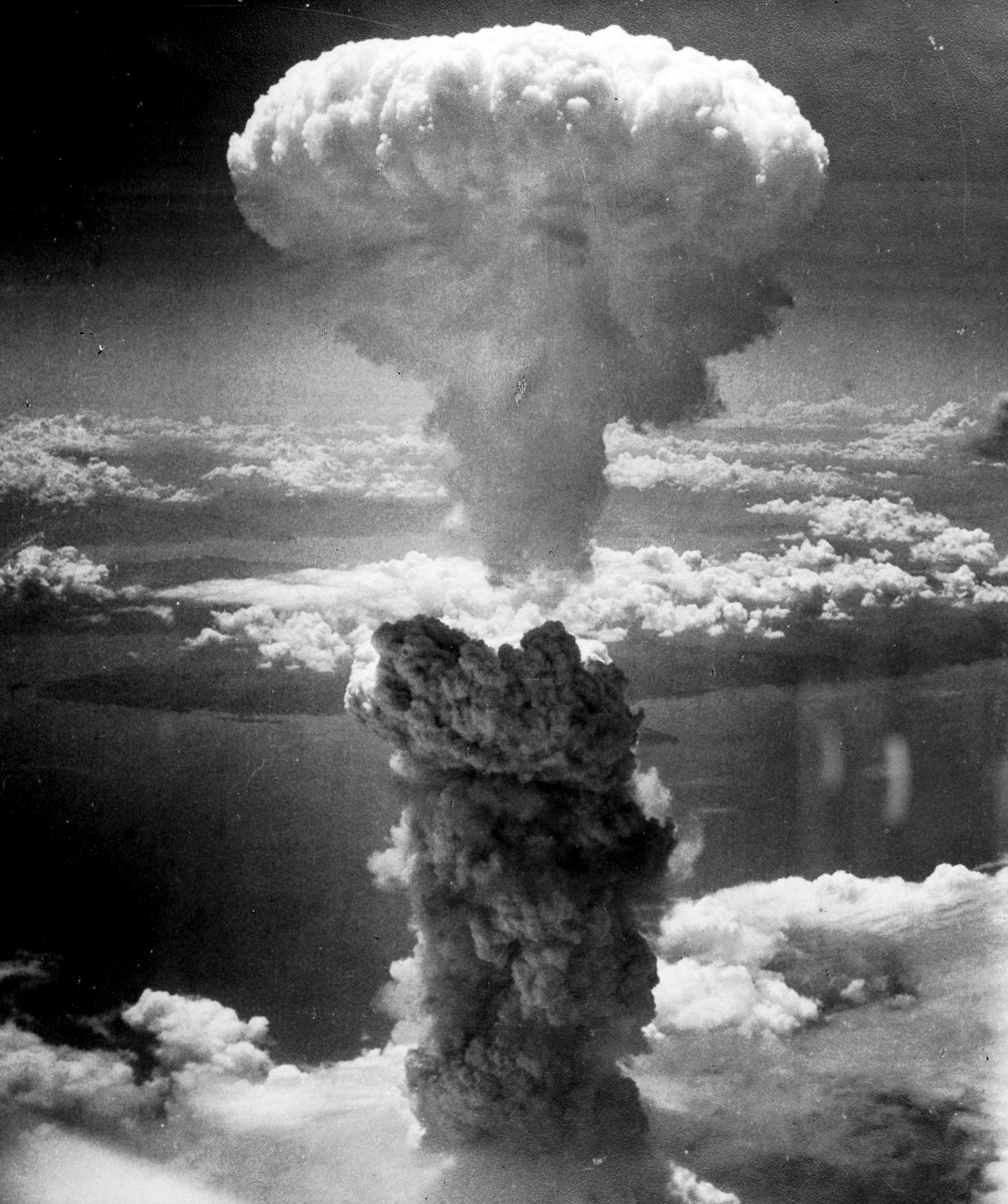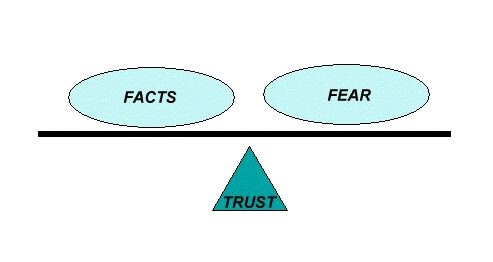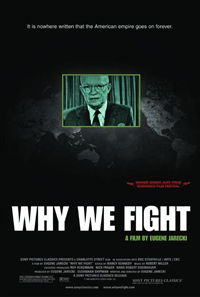 Anti-Ford Protest by Brian Carnell (link)
Anti-Ford Protest by Brian Carnell (link)The following was retrieved from: http://www.resurgence.org/resurgence/issues/roberts218.htm
The US economy needs oil like a junkie needs heroin - and iraq will supply its next fix
Motor vehicles are responsible for one third of global oil use and two thirds of US oil use.
WAR IN IRAQ was inevitable. That there would be war was decided by North American planners in the mid-1920s. That it would be in Iraq was decided much more recently. The architects of this war were not military planners but town planners. War is inevitable not because of weapons of mass destruction, as claimed by the political right, nor because of Western imperialism, as claimed by the left. The cause of this war is car dependence.
The US has paved itself into a corner. Its physical and economic infrastructure is so highly car dependent that the US is pathologically addicted to oil. Without billions of barrels of precious black sludge being pumped into the veins of its economy every year, the nation would experience painful and damaging withdrawal.
The first Model T Ford rolled off the assembly line in 1908 and was a miracle of mass production. In the first decade of that century, car registrations in the US increased from 8,000 to almost 500,000. Within the cities, buses replaced trams, and then cars replaced buses. In 1932, General Motors bought up America's tramways and then closed them down. But it was the urban planners who really got America hooked. Car ownership offered the possibility of escape from dirty, crowded cities to leafy garden suburbs, and the urban planners provided the escape routes.
Throughout the 1920s and 1930s, America 'road built' itself into a nation of home-owning suburbanities. In the words of singer Joni Mitchell: "They paved paradise and put up a parking lot." Cities such as Los Angeles, Dallas and Phoenix were moulded by the private passenger car into vast urban sprawls which are so widely spread that it is almost impossible to service them economically with public transport.
As the cities sprawled, the motor manufacturing industry consolidated. Car-making is now the main industrial employer in the world, dominated by five major groups of which General Motors is the largest. The livelihood and landscape of North Americans were forged by car-makers.
MOTOR VEHICLES are responsible for about one-third of global oil use, but for nearly two-thirds of US oil use. In the rest of the world, heating and power generation account for most oil use. The increase in oil prices during the 1973 Arab oil embargo encouraged the substitution of other fuels in heating and power generation, but in the transport sector there is little scope for oil substitution in the short term.
Due to artificially low oil and gasoline prices that did not reflect the true social costs of production and use, there was little incentive to seek alternative energy sources. The Arab oil embargo temporarily stimulated greater fuel efficiency with the introduction of gasoline consumption standards, but the increasing popularity of gas-guzzling sports utility vehicles over the past decade has substantially reduced the average fuel efficiency of the US car fleet.
The US transportation sector is almost totally dependent on oil, and supplies are running out. It is estimated that the total amount of oil that can be pumped out of the earth is about 2,000 billion barrels and that world oil production will peak in the next ten to fifteen years. Since even modest reductions in oil production can result in major hikes in the cost of gasoline, the US administration is well aware of the importance of ensuring oil supplies. Every major oil price shock of the past thirty years was followed by a US recession and every major recession was preceded by an oil price shock.
In 1997, the Carnegie commission on preventing deadly conflict identified factors that put states at risk. They include rapid population changes that outstrip the capacity of the state to provide essential services, and the control of valuable natural resources by a single group. Both factors are key motivators in the war with Iraq. Sprawling suburban America needs oil, and Saddam Hussein is sitting on it.
The US economy needs oil like a junkie needs heroin, and Iraq has 112 billion barrels, the largest supply in the world outside Saudi Arabia. Even before the first shot was fired, there were discussions about how Iraq's oil reserves would be carved up. All five permanent members of the un security council have international oil companies that have an interest in 'regime change' in Baghdad.
CAR DEPENDENCE is a global public health issue of which gasoline wars are only one facet. Every day about 3,000 people die and 30,000 people are seriously injured on the world's roads in traffic crashes. More than 85% of the deaths are in low- and middle-income countries, with pedestrians, cyclists and bus passengers bearing most of the burden. Most of the victims will never own a car, and many are children.
By 2020, road crashes will have moved from ninth to third place in the world ranking of the burden of disease and injury, and will be in second place in developing countries. That we accept this carnage as the collateral damage in a car-based transport system indicates the strength and pervasiveness of car dependency. Moreover, car travel has reduced our walking. One-quarter of all car journeys are less than two miles. A 3km walk uses up about half the energy in a small bar of chocolate. The same distance by car expends ten times as much energy but from the wrong source. We can make chocolate, but oil reserves are finite.
Car use and the corresponding decline in physical activity is an important cause of the obesity epidemic in the US and the UK, and physical inactivity increases the risks of heart disease, diabetes, osteoporosis and hypertension. Car-based shopping has turned many small towns into ghost towns and has severed the supportive social networks of community interaction.
The first gasoline war was waged in Kuwait and the second was waged in Iraq. The world is now witnessing the third. On the brink of war with Iraq, Tony Blair played the role of tough world leader. But transport, not Iraq, is the truly tough issue. His deputy, John Prescott, tried and failed to deal with car dependency and now the government is in policy retreat. Ken Livingstone, who does not own a car and has leadership qualities that Blair lacks, may with congestion charging, succeed where others have failed, but his enemies have powerful lobby group support.
Those who opposed war in Iraq must work together to prevent the conflicts that will follow if we fail to tackle car dependency. We must reclaim the streets, promote walking and cycling, strengthen public transport, oppose new road construction and pay the full social cost of car use. We must argue for land-use policies that reduce the need for car travel. We need 'urban villages' clustered around public transport nodes, not sprawling car-dependent conurbations. We can all play our part and we must act now. o
from Resurgence issue 218This article first appeared in The Guardian.
Ian Roberts is professor of public health at the London School of Hygiene and Tropical Medicine, ian.roberts@LSHTM.ac.uk.
* Ian Roberts, INJURY AND GLOBALISATION: If business had to pay the full social and environmental cost of transport there would be less enthusiasm for transnational trade.(Resurgence Magazine: Editor's Selection)
 A destroyed Iraqi tank rests near a series of oil well fires in northern Kuwait.
A destroyed Iraqi tank rests near a series of oil well fires in northern Kuwait.Iraqi troops looted, blew up and burned much of Kuwait's oil infrastructure. (link)
The following was retrieved from: http://deoxy.org/killthecar.htm
Review Spring/97, deoxy.org Fall/97
When eager crowds pushed through the turnstiles of Detroit's North American International Auto Show during a recent Winter, they had the look of fans at a championship game or dreamy-eyed kids thinking of presents under the Christmas tree. Although all of them must have been aware, at some level of consciousness, of the carnage, property damage, and pollution these icons of fantasy and desire create, they were there to ooh and ahh the futuristic concept cars and the latest models.
1996 was the centenary of Henry Ford's first automobile, and Detroit, the so-called Motor City (even though only one percent of auto production currently occurs here), has seen a spate of official celebrations sponsored by car companies and the auto union. Michigan even issued special commemorative license plates.
Smash the Wall
The Story has it that on June 4, 1896, young Hank discovered that his first car was too big to make it through the doors of the workshop where he had built it. Taking up a sledgehammer, he smashed out the wall around the door to provide an opening large enough for the vehicle. Since that time, the automobile has been doing more or less the same thing to the planet's ecosphere.
The car very rapidly became the central artifact of the individualistic subjectivity of modern industrial capitalist civilization. When they purchase a car, people aren't simply obtaining needed transportation, but pseudo-identity, and the illusion of freedom. Too bad if this fetish brings about unprecedented catastrophe for the life web of the planet--forests, waters, soils, the atmosphere--and for the half a million people currently killed globally every year in motor vehicle accidents, one third of them children. Motorized vehicles have also revolutionized war, making possible far greater panoplies of mass destruction.
As Jan Lundberg, editor of Auto Free Times (magazine of the Alliance for a Paving Moratorium), notes, "We live in an autocracy. Future generations, the biggest victims, will be incredulous over our Dark Age. But both Clinton and Dole, as well as your friendly corporate news media, promised more jobs, through cars--and cars through jobs."
According to Lundberg, "The so-called love affair with the car may be real for the would-be cowboy or phallic-driving greedball, but really it's a case of lack of choice. Just look at the polls of motorists indicating they want more public transit. Or consider the criminal conspiracy that General Motors hatched with two oil companies, a tire and a truck company to destroy 85 American cities' rail trolley systems earlier this century so we could get buses, pavement and freeways instead." One can, of course, "choose" not to own a car in many cities, as Lundberg, who lives in pedestrian friendly Atcata, California, has done. But in a lot of places, for example, Detroit, there is no real choice. Like landless peasants eating the seeds for next year's crop, people have been driven to drive to survive, and driving, undermines their long term survival.
The Endless Thrist for Oil
Not only is the modern driver little more than a variety of drudge engaged in a mindless (mostly unpaid) labor ("Drive to work, work to drive," goes the saying), petroleum is the requisite, foundational resource fuel for industrial capitalism. Lundberg believes oil will run out in the near future, but we are not convinced. Corporations continue to announce the discovery of potentially vast reserves in unlikely places all over the planet (Greenland, Southeast Asia, etc.). The fact is that some definitive, fossil fuel-generated ecocide will likely come long before the wells run dry.
Little or nothing is being done about the rapidly apporaching cataclysm, either because of the inevitable consequences of an ongoing production-consumption economy, or because of the logical consequences of a possible depletion-collapse. Instead, even after the horrors of the Persian Gulf War, denial remains the name of the game, with some thirty million new cars produced each year looking for buyers. And nothing, not even the last remnants of relatively pristine wilderness, be it Ecuadorian rainforest or arctic tundra, is immune from this fever. The command may come from above, but it is supported by the thoroughly conditioned below; keep drilling. It doesn't seem to matter, for example, that corporations could drain the Arctic National Wildlife Refuge and get at best 400 days of gasoline for the U.S. fleet of 150 million cars.
Oil Wars and Chemical Spills
The car and car culture are integral to nearly every destructive pathology in modern capitalism. The more miles of road are built, the more all the interrelated, exponentially expanding ecological and social crises are manifest, from the mass extinction of species to atmospheric collapse. Not only oil wars and massive oil and chemical spills, but every ongoing, undramatic disaster can be linked to them, among them a million or so animals killed every day by cars, the wantonly negligent abuse of land, the destruction of forests and farmlands, the oppressive alienation of exurban, car-generated pseudo-villages of strangers, a banal and empty personhood based on speeding from one blank, degraded place to another. Also, worsening air pollution and diminished human health: every car produced leaves fifty barrels of toxic wastes in the process of production, and that doesn't count the car itself, which is also a toxic product.
Car Production is Suicide
To mention just one other health effect, each year the Big Three automakers use more than ten tons of mercury--one of the most deadly substances released into the environment by industrial production-- for "convenience light" switches in cars. This is not an example of people destroying themselves to meet what might be thought their immediate, basic needs--for example, using petroleum in agriculture and basic transport of food and the like (at least until some other more reasonable forms of sustainable lifeways can emerge)--but for the most trivial kind of conditioned comfort. It is a madness that must eventually take the world's elites and their proletarians down together into oblivion--not through the mutual destruction of contending classes as Marx once put it, but through clas collaboration to create a fundamentally pathological and unsustainable society.
Here in Detroit, one thinks of a particularly repulsive display in the latest Labor Day parade down Woodward Avenue. There, auto workers waved from a motorized float draped in American flags and showcasing a red Ford Mustang (provided by the company). The fast car, usually seen barreling alone through some stunningly beautiful desert at sunset--an image familiar to anyone who has ever seen a commercial for the automobile, is every mass man's (and every mass woman's) most pyrrhic psychic-sexual power fantasy. But the paved over cities of the future, contaminated and uninhabitable from what Henry Ford's inventions have done to them, are the real, far less beautiful, life-less landscape awaiting us.
As Ivan Illich argues, social and ecological conversion demand economic and industrial inversion. People are going to have to find better ways to spend their time than making and driving cars. Let us reiterate our desire to rid ourselves, once and for all, of the most representative creation of capitalism and everything that is most foul, imbecilic and corrupt about it, as well as most thoroughly destructive of the possibilities for genuine ecological and social harmony. Down with Car Culture! Kill the Car!
The car and car culture are integral to nearly every destructive pathology in modern capitalism. The more miles of road are built, the more all the interrelated, exponentially expanding ecological and social crises are manifest, from the mass extinction of species to atmospheric collapse. Not only oil wars and massive oil and chemical spills, but every ongoing, undramatic disaster can be linked to them....
LINKS:
Links from The Guardian :
Special report
Iraq
Also on Guardian Unlimited
Special report: United States
Special report: Israel & the Middle East
Special report: oil and petrol
More on UK foreign policy
Interactive guides
Iraq's military capability
Presidential 'palaces'
Iraq under threat - the US options
US military buildup
British military buildup
The Gulf war
Explained
09.12.2002: Weapons inspections
04.10.2002: War with Iraq
The weblog
Weblog special: Iraq
News guide
Iraq
Full text
Sites visited by the UN weapons inspectors
20.12.2002: US secretary of state Colin Powell's statement on Iraq's weapons declaration
20.12.2002: UN security council resolution 1441 on Iraq
02.12.02: UK government dossier on human rights abuses in Iraq (pdf)
24.09.02: UK government dossier on Iraq's military capability (pdf)
In pictures
Saddam Hussein's inner circle
10 years after the Gulf war
Useful links
Arab Gateway: Iraq briefing
Middle East Daily
Campaign Against Sanctions on Iraq
Iraq sanctions - UN security council
UN special commission on Iraq













































